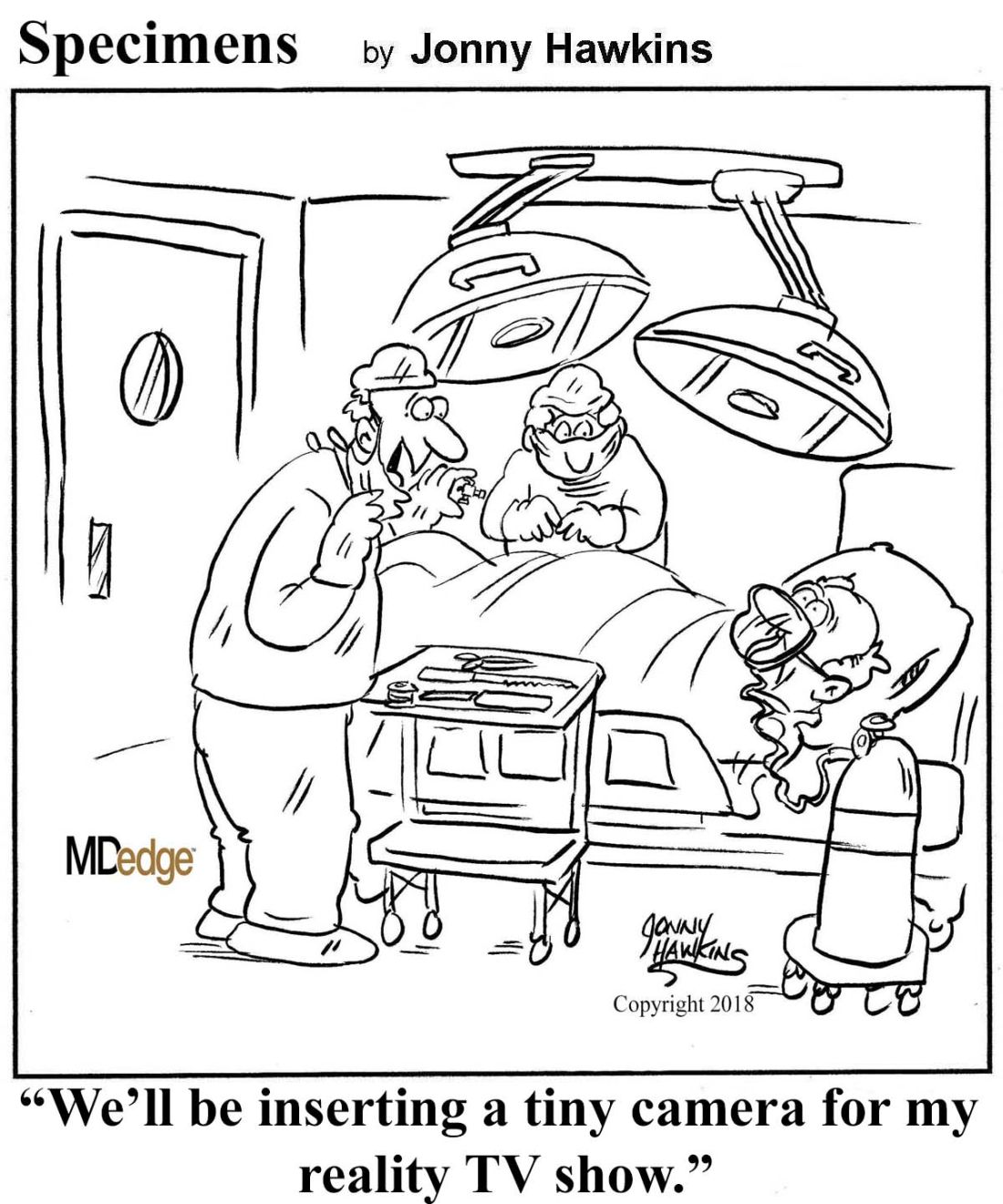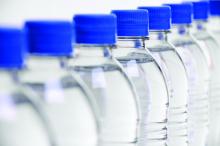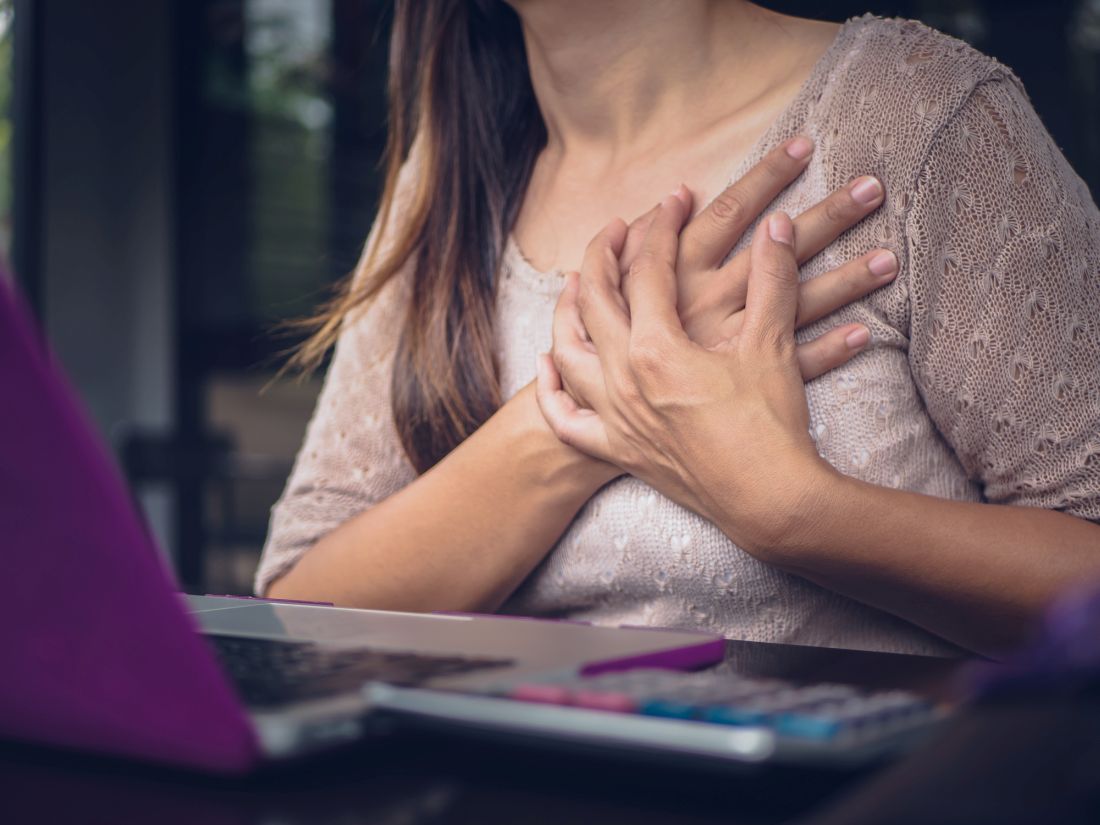User login
Google: A hypochondriac’s dream
Thanks to Google, we have basically free and unlimited access to a huge amount of information right at our fingertips. So when you’re laid up at home with a cold that seems to be taking a turn for the worse, it’s only natural to pull out your phone and ask Google all about your strange new symptoms. After all, the doctor’s office is so far away, and it costs money and time, and who even wants to deal with doctors anyway?
According to a survey commissioned by LetsGetChecked, you’d hardly be alone in turning to Dr. Google. Although 51% of the 2,000 survey respondents consulted a doctor as their first choice for medical help, 65% admitted that they use Google to self-diagnose, 26% have no primary care physician, and about 60% actively avoid doctor’s offices.
So, for the two-thirds of Americans who made an appointment with the good internet doctor, how did things turn out? Not well. About three-quarters reported worrying more afterward, and 43% of all survey respondents managed to convince themselves that they had contracted a serious illness. And the information they looked up? It was wrong more than 60% of the time.
As it turns out, a trained medical professional is actually better than a search engine. Now all we need to do is make accessing health care cheaper, more convenient, and easier to understand. No problem, right?
Better the second time around?
“What’s this stuff?”
“Recycled water. Supposed to taste just like regular water.”
“Did you drink it?”
“I’m not gonna drink it. You drink it.”
“I’m not gonna drink it.”
“Let’s get Mikey!”
“He won’t drink it. He hates everything.”
This time, the kids were right. Mikey did hate the recycled wastewater, or to be more accurate, he was disgusted by it. Like most people, he supports the idea of water conservation but is too disgusted by the source of recycled water to drink it, according to investigators at the University of California, Riverside.
In three separate experiments, volunteers were shown videos about water. One was about water conservation, another was about the urban myth that crocodiles live in New York City sewers, and the third was an educational video demonstrating that recycled wastewater is contaminant free.
In the first experiment, half of the subjects watched the conservation video and half watched the NYC sewer video. Afterward, nearly all participants in each group said no thanks to recycling. In the second experiment, subjects from the two video-watching groups were all shown the third video on recycled water’s purity. That led to a small but insubstantial increase in willingness to use recycled water.
In the third experiment, each of three groups watched one of the videos. Afterward, all subjects were asked to sign a petition supporting conservation and were offered a bottle of water labeled “SMARTdrop – Pure Recycled Water.” About two-thirds of each group signed the petition and took the bottle despite the investigators’ expectation that the group watching the water purity video would have greater acceptance.
Messaging involving water scarcity and conservation alone may not be enough in this case. Instead, the researchers urged “a focus on the more visceral roadblock of disgust.”
Maybe, or maybe not. For now, let’s get back to Mikey and company.
“Don’t tell the kids it’s the recycled wastewater you’ve been trying to get them to drink. You’re the only one who has to know.”
Chicken soup for the malarial soul
A nice hot cup of soup: The refuge of concerned parents who managed to resist looking at Google and decided that their child’s cold wasn’t actually stage IV lung cancer. It’s good, and it’s good for you. But just how good for you? Could the healing powers of soup be harnessed to treat something like, say, malaria?
The research, published in Archives of Disease in Childhood, has perhaps the most adorable setup of any study our cold, stony hearts at LOTME world headquarters have ever seen. The researchers went to a London primary school and asked a group of students to bring in homemade soup for testing and analysis. The students obliged, bringing in dozens of unique soups, of which 56 were tested for 72 hours against the deadliest malaria species, Plasmodium falciparum.
Not every soup was effective, but extracts from five broths were able to halt growth of sexually immature parasites by more than 50%, two of which were about as effective as dihydroartemisinin, a leading antimalarial drug. In addition, four other broths were more than 50% effective at blocking sexual maturation.
The researchers noted that they haven’t analyzed the ingredients of the soups yet and that the utility of soup in combating malaria will depend on a number of factors; regardless, we hope those kids got some serious extra credit. Curing malaria is way more impressive than knowing that mitochondria are the powerhouse of the cell.

Google: A hypochondriac’s dream
Thanks to Google, we have basically free and unlimited access to a huge amount of information right at our fingertips. So when you’re laid up at home with a cold that seems to be taking a turn for the worse, it’s only natural to pull out your phone and ask Google all about your strange new symptoms. After all, the doctor’s office is so far away, and it costs money and time, and who even wants to deal with doctors anyway?
According to a survey commissioned by LetsGetChecked, you’d hardly be alone in turning to Dr. Google. Although 51% of the 2,000 survey respondents consulted a doctor as their first choice for medical help, 65% admitted that they use Google to self-diagnose, 26% have no primary care physician, and about 60% actively avoid doctor’s offices.
So, for the two-thirds of Americans who made an appointment with the good internet doctor, how did things turn out? Not well. About three-quarters reported worrying more afterward, and 43% of all survey respondents managed to convince themselves that they had contracted a serious illness. And the information they looked up? It was wrong more than 60% of the time.
As it turns out, a trained medical professional is actually better than a search engine. Now all we need to do is make accessing health care cheaper, more convenient, and easier to understand. No problem, right?
Better the second time around?
“What’s this stuff?”
“Recycled water. Supposed to taste just like regular water.”
“Did you drink it?”
“I’m not gonna drink it. You drink it.”
“I’m not gonna drink it.”
“Let’s get Mikey!”
“He won’t drink it. He hates everything.”
This time, the kids were right. Mikey did hate the recycled wastewater, or to be more accurate, he was disgusted by it. Like most people, he supports the idea of water conservation but is too disgusted by the source of recycled water to drink it, according to investigators at the University of California, Riverside.
In three separate experiments, volunteers were shown videos about water. One was about water conservation, another was about the urban myth that crocodiles live in New York City sewers, and the third was an educational video demonstrating that recycled wastewater is contaminant free.
In the first experiment, half of the subjects watched the conservation video and half watched the NYC sewer video. Afterward, nearly all participants in each group said no thanks to recycling. In the second experiment, subjects from the two video-watching groups were all shown the third video on recycled water’s purity. That led to a small but insubstantial increase in willingness to use recycled water.
In the third experiment, each of three groups watched one of the videos. Afterward, all subjects were asked to sign a petition supporting conservation and were offered a bottle of water labeled “SMARTdrop – Pure Recycled Water.” About two-thirds of each group signed the petition and took the bottle despite the investigators’ expectation that the group watching the water purity video would have greater acceptance.
Messaging involving water scarcity and conservation alone may not be enough in this case. Instead, the researchers urged “a focus on the more visceral roadblock of disgust.”
Maybe, or maybe not. For now, let’s get back to Mikey and company.
“Don’t tell the kids it’s the recycled wastewater you’ve been trying to get them to drink. You’re the only one who has to know.”
Chicken soup for the malarial soul
A nice hot cup of soup: The refuge of concerned parents who managed to resist looking at Google and decided that their child’s cold wasn’t actually stage IV lung cancer. It’s good, and it’s good for you. But just how good for you? Could the healing powers of soup be harnessed to treat something like, say, malaria?
The research, published in Archives of Disease in Childhood, has perhaps the most adorable setup of any study our cold, stony hearts at LOTME world headquarters have ever seen. The researchers went to a London primary school and asked a group of students to bring in homemade soup for testing and analysis. The students obliged, bringing in dozens of unique soups, of which 56 were tested for 72 hours against the deadliest malaria species, Plasmodium falciparum.
Not every soup was effective, but extracts from five broths were able to halt growth of sexually immature parasites by more than 50%, two of which were about as effective as dihydroartemisinin, a leading antimalarial drug. In addition, four other broths were more than 50% effective at blocking sexual maturation.
The researchers noted that they haven’t analyzed the ingredients of the soups yet and that the utility of soup in combating malaria will depend on a number of factors; regardless, we hope those kids got some serious extra credit. Curing malaria is way more impressive than knowing that mitochondria are the powerhouse of the cell.

Google: A hypochondriac’s dream
Thanks to Google, we have basically free and unlimited access to a huge amount of information right at our fingertips. So when you’re laid up at home with a cold that seems to be taking a turn for the worse, it’s only natural to pull out your phone and ask Google all about your strange new symptoms. After all, the doctor’s office is so far away, and it costs money and time, and who even wants to deal with doctors anyway?
According to a survey commissioned by LetsGetChecked, you’d hardly be alone in turning to Dr. Google. Although 51% of the 2,000 survey respondents consulted a doctor as their first choice for medical help, 65% admitted that they use Google to self-diagnose, 26% have no primary care physician, and about 60% actively avoid doctor’s offices.
So, for the two-thirds of Americans who made an appointment with the good internet doctor, how did things turn out? Not well. About three-quarters reported worrying more afterward, and 43% of all survey respondents managed to convince themselves that they had contracted a serious illness. And the information they looked up? It was wrong more than 60% of the time.
As it turns out, a trained medical professional is actually better than a search engine. Now all we need to do is make accessing health care cheaper, more convenient, and easier to understand. No problem, right?
Better the second time around?
“What’s this stuff?”
“Recycled water. Supposed to taste just like regular water.”
“Did you drink it?”
“I’m not gonna drink it. You drink it.”
“I’m not gonna drink it.”
“Let’s get Mikey!”
“He won’t drink it. He hates everything.”
This time, the kids were right. Mikey did hate the recycled wastewater, or to be more accurate, he was disgusted by it. Like most people, he supports the idea of water conservation but is too disgusted by the source of recycled water to drink it, according to investigators at the University of California, Riverside.
In three separate experiments, volunteers were shown videos about water. One was about water conservation, another was about the urban myth that crocodiles live in New York City sewers, and the third was an educational video demonstrating that recycled wastewater is contaminant free.
In the first experiment, half of the subjects watched the conservation video and half watched the NYC sewer video. Afterward, nearly all participants in each group said no thanks to recycling. In the second experiment, subjects from the two video-watching groups were all shown the third video on recycled water’s purity. That led to a small but insubstantial increase in willingness to use recycled water.
In the third experiment, each of three groups watched one of the videos. Afterward, all subjects were asked to sign a petition supporting conservation and were offered a bottle of water labeled “SMARTdrop – Pure Recycled Water.” About two-thirds of each group signed the petition and took the bottle despite the investigators’ expectation that the group watching the water purity video would have greater acceptance.
Messaging involving water scarcity and conservation alone may not be enough in this case. Instead, the researchers urged “a focus on the more visceral roadblock of disgust.”
Maybe, or maybe not. For now, let’s get back to Mikey and company.
“Don’t tell the kids it’s the recycled wastewater you’ve been trying to get them to drink. You’re the only one who has to know.”
Chicken soup for the malarial soul
A nice hot cup of soup: The refuge of concerned parents who managed to resist looking at Google and decided that their child’s cold wasn’t actually stage IV lung cancer. It’s good, and it’s good for you. But just how good for you? Could the healing powers of soup be harnessed to treat something like, say, malaria?
The research, published in Archives of Disease in Childhood, has perhaps the most adorable setup of any study our cold, stony hearts at LOTME world headquarters have ever seen. The researchers went to a London primary school and asked a group of students to bring in homemade soup for testing and analysis. The students obliged, bringing in dozens of unique soups, of which 56 were tested for 72 hours against the deadliest malaria species, Plasmodium falciparum.
Not every soup was effective, but extracts from five broths were able to halt growth of sexually immature parasites by more than 50%, two of which were about as effective as dihydroartemisinin, a leading antimalarial drug. In addition, four other broths were more than 50% effective at blocking sexual maturation.
The researchers noted that they haven’t analyzed the ingredients of the soups yet and that the utility of soup in combating malaria will depend on a number of factors; regardless, we hope those kids got some serious extra credit. Curing malaria is way more impressive than knowing that mitochondria are the powerhouse of the cell.




